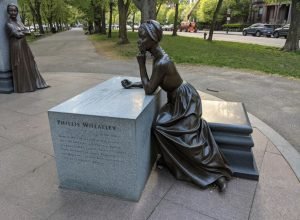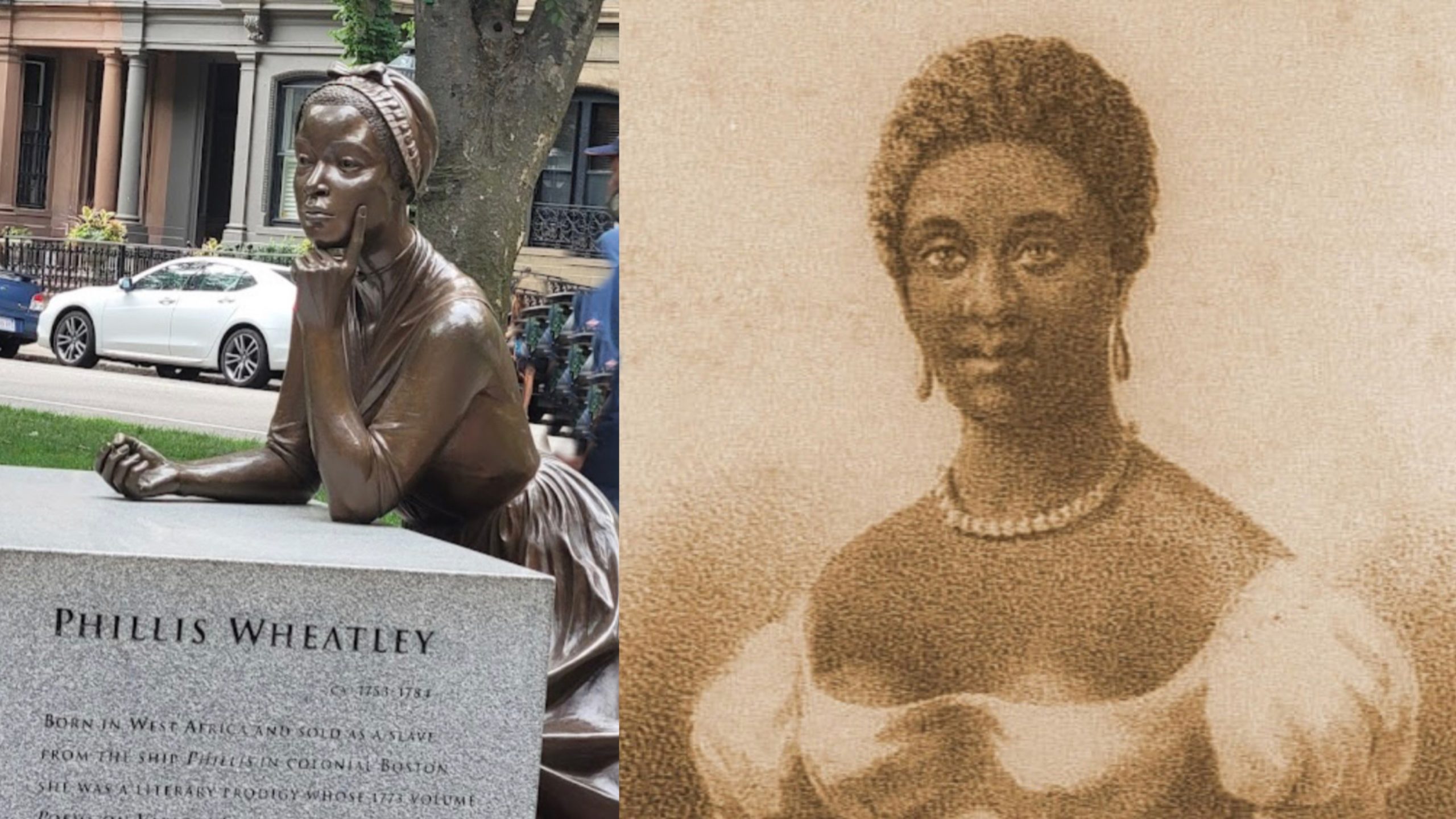Phillis Wheatley was indeed a significant figure in American history, particularly for her accomplishments as a poet.
Born in West Africa, likely in Senegal or Gambia, around 1753, Wheatley was kidnapped and sold into slavery at the age of seven.
She was transported to Boston, Massachusetts, where she was purchased by John Wheatley as a domestic servant for his wife, Susanna Wheatley.
Recognizing Phillis Wheatley’s intelligence and potential, the Wheatley family provided her with an education.
Wheatley quickly learned to read and write English, and she also studied Latin, Greek, and various subjects including literature, history, and theology.
Wheatley’s remarkable talent for poetry became apparent at a young age, and she began composing her own verses.
In 1770, when she was around 17 years old, Wheatley’s first published poem, “On Messrs. Hussey and Coffin,” appeared in the Newport Mercury newspaper. This marked the beginning of her journey as a published poet.
Over the following years, Wheatley’s poems gained recognition and acclaim.
In 1773, at the age of 20, Phillis Wheatley’s collection of poems titled “Poems on Various Subjects, Religious and Moral” was published in London. This publication made her the first African American and the first enslaved African to have a book of poetry published.
The collection included elegies, odes, and other poetic forms, addressing themes of religion, morality, and the human condition.
Wheatley’s poetry was widely celebrated and gained attention both in the American colonies and abroad.
Her work attracted notable figures of the time, including George Washington and Benjamin Franklin, who praised her talent and intellect.
Wheatley’s poetry demonstrated her mastery of English verse, classical references, and her ability to engage with contemporary issues.
Despite her literary success, Wheatley’s life continued to be challenging. She remained enslaved even after the publication of her book, and she faced ongoing discrimination and prejudice.
In an effort to gain her freedom, Wheatley petitioned the Wheatley family after the death of Susanna Wheatley in 1774.
In 1778, Phillis Wheatley was emancipated, thanks in part to the support of abolitionists.
Following her emancipation, Wheatley married John Peters, a free Black man, in 1778.
The couple faced financial difficulties, and Wheatley struggled to continue her writing career.
Tragically, she died at the young age of 31 on December 5, 1784.

Phillis Wheatley’s legacy as the first published African American poet remains significant. Her poetry challenged racial stereotypes and demonstrated the intellectual capabilities and artistic talent of enslaved Africans.
Wheatley’s work opened doors for future African American writers and poets, paving the way for literary voices that would come to shape American literature in the centuries to follow.
 The African History Truly African
The African History Truly African

